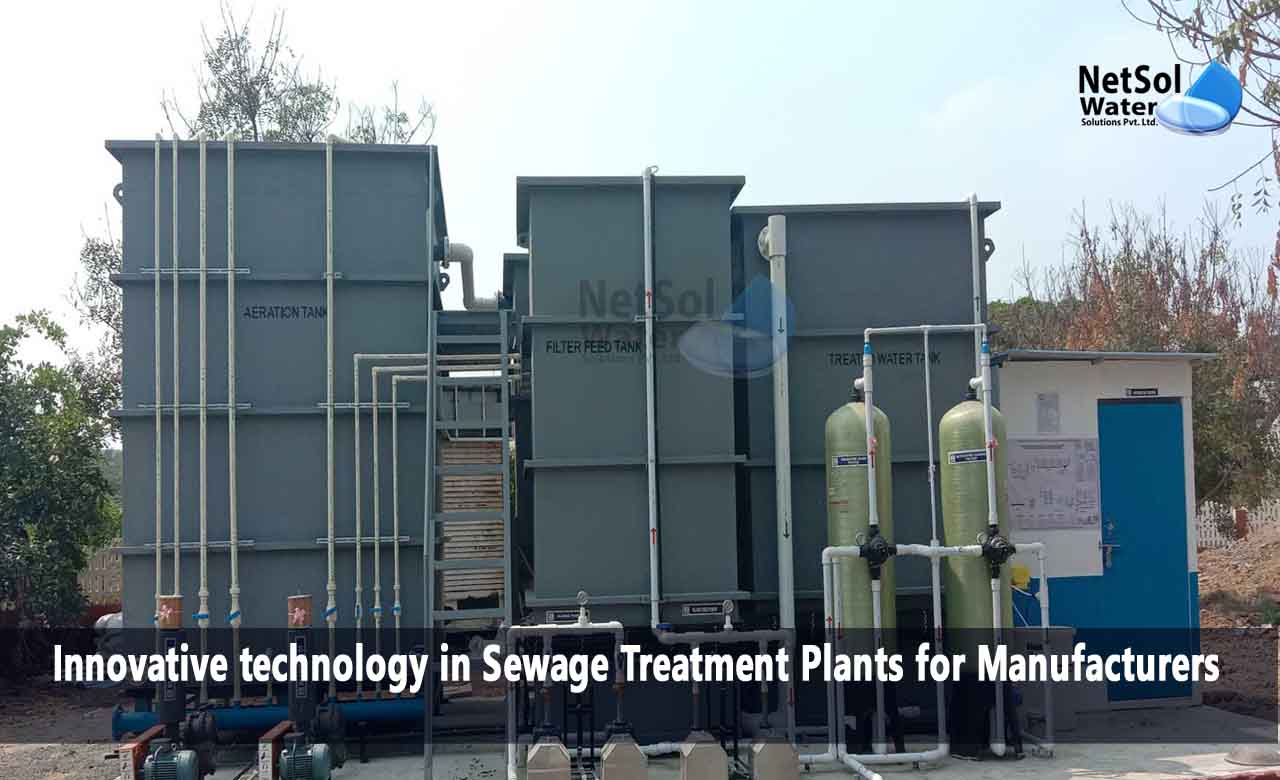Innovative technology in Sewage Treatment Plants for Manufacturers
Waste management is a critical issue that affects not only our environment but also the sustainability and profitability of manufacturing industries. As the world grapples with increasing population and urbanization, the need for effective waste treatment solutions becomes more pressing. In particular, sewage treatment plants play a vital role in treating industrial wastewater and preventing pollution.
In this blog, we will explore the future of waste management and highlight some innovative technologies that manufacturers can adopt to improve their sewage treatment processes.
1- Membrane Bioreactors (MBRs):
Membrane bioreactors (MBRs) are a cutting-edge technology that combines biological treatment with membrane filtration. This innovation offers several advantages over traditional treatment methods. MBRs use a combination of microorganisms and membranes to remove contaminants from wastewater, resulting in higher quality effluent. The membranes act as physical barriers, ensuring the removal of suspended solids, pathogens, and even some dissolved pollutants. MBR systems require less space compared to conventional treatment processes and are highly efficient, producing water that can be reused for non-potable applications within the manufacturing facility.
2- Anaerobic Digestion:
Anaerobic digestion is an environmentally friendly technology that breaks down organic waste into biogas and nutrient-rich biosolids. This process occurs in the absence of oxygen, and it is particularly beneficial for treating high-strength organic wastewater generated by industries. By utilizing anaerobic digestion, manufacturers can not only treat their wastewater but also harness the biogas produced as an energy source. Biogas can be used for heating or generating electricity, reducing reliance on traditional fossil fuels and lowering operational costs.
3- Advanced Oxidation Processes (AOPs):
Advanced Oxidation Processes (AOPs) involve the use of powerful oxidants to degrade organic compounds present in wastewater. These processes can effectively remove persistent organic pollutants and toxic substances that are resistant to traditional treatment methods. AOPs are versatile and can be applied as a standalone treatment or as a supplement to existing treatment systems. By incorporating AOPs into their sewage treatment plants, manufacturers can ensure the removal of complex contaminants and improve the overall water quality.
4- Resource Recovery:
The future of waste management lies not only in treating and disposing of waste but also in recovering valuable resources from it. Sewage treatment plants are increasingly being designed to extract and recycle materials that have economic value. For example, phosphorus and nitrogen, essential nutrients for agriculture, can be recovered from wastewater and transformed into fertilizer. Additionally, various metals, such as silver or copper, can be extracted and recycled from industrial effluents. Resource recovery not only reduces the environmental impact of waste but also presents an opportunity for manufacturers to create a circular economy and generate additional revenue streams.
5- Monitoring and Automation:
Advancements in monitoring and automation technologies are revolutionizing the way sewage treatment plants are operated. Real-time monitoring systems allow manufacturers to track water quality parameters, energy consumption, and plant performance, enabling proactive maintenance and optimization. Moreover, automated control systems can adjust treatment processes based on the fluctuating characteristics of the influent, ensuring consistent and efficient operation. These technologies provide valuable insights into plant operations, reduce operational costs, and enhance the overall sustainability of manufacturing processes.
Conclusion:
The future of waste management in manufacturing industries is centered around innovative sewage treatment plants. By adopting technologies such as membrane bioreactors, anaerobic digestion, advanced oxidation processes, resource recovery, and monitoring and automation systems, manufacturers can achieve higher treatment efficiency, reduce environmental impact, and improve resource utilization. Embracing these innovations not only demonstrates a commitment to sustainable practices but also presents opportunities for cost savings, increased productivity, and the creation of a greener image for businesses. As we move forward, it is crucial for manufacturers to embrace these advancements and play an active role in shaping the future of waste management for a cleaner and more sustainable world.
Netsol Water is Greater Noida-based leading water & wastewater treatment plant manufacturer. We are industry's most demanding company based on client review and work quality. We are known as best commercial RO plant manufacturers, industrial RO plant manufacturer, sewage treatment plant manufacturer, Water Softener Plant Manufacturers and effluent treatment plant manufacturers. Apart from this 24x7 customer support is our USP. Call on +91-9650608473, or write us at enquiry@netsolwater.com for any support, inquiry or product-purchase related query.



